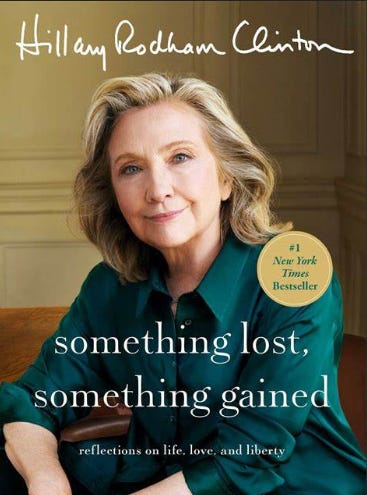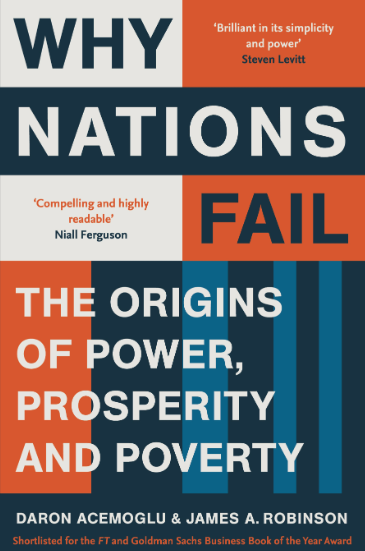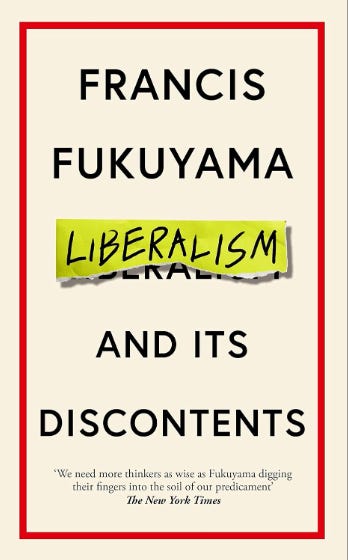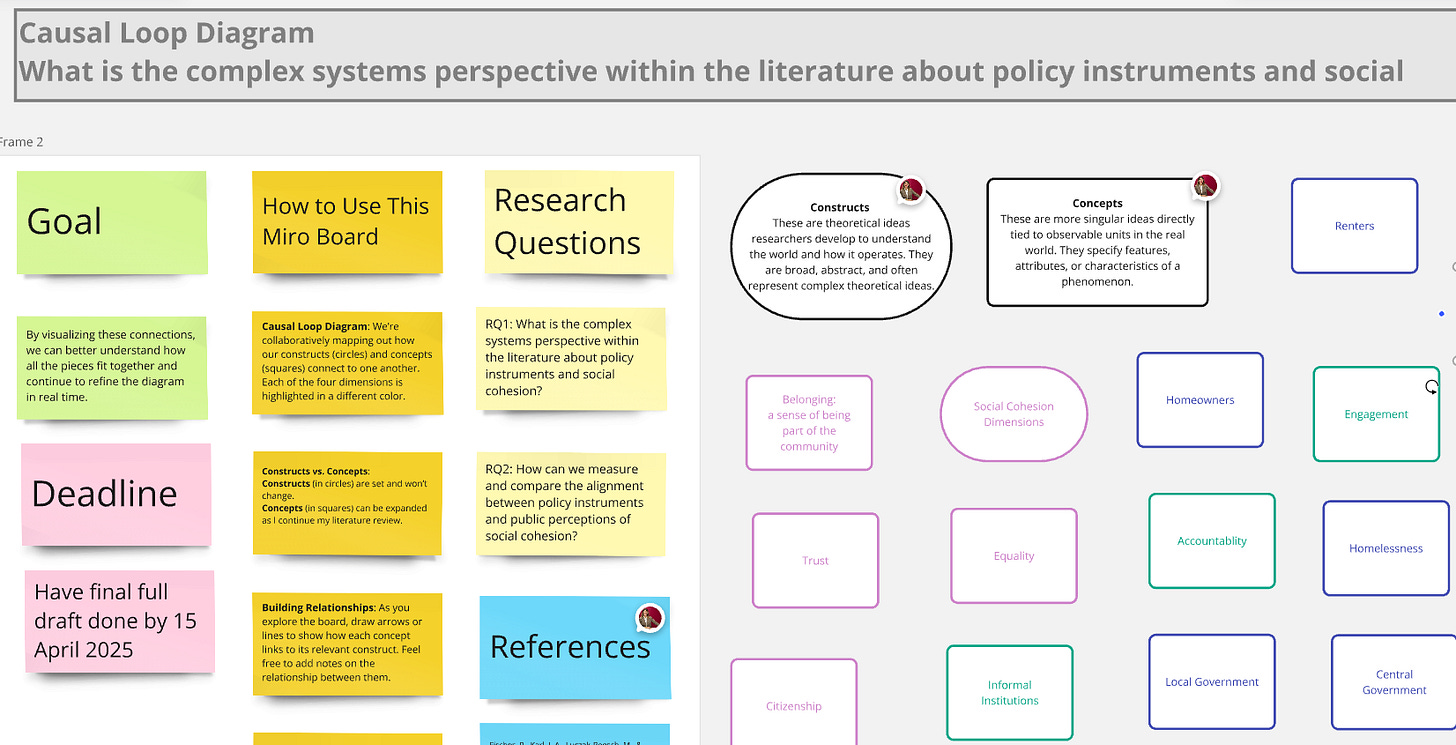The Politics of Ideas in New Zealand: Institutions, Diversity, and Liberal Democracy
Books I’ve been reading, ideas I’ve been grappling with, and what they mean for New Zealand’s political landscape in 2025. Plus, there’s a poll.
Since the political cycle in New Zealand hasn’t officially kicked off yet (the first sitting week isn’t until January 28th and surprise reshuffle aside), I’ve been reflecting on ideas about how Instutionalism, Diversity, Liberalism interact, inspired by a few books I’v been reading over the summer.

One book I’ve been reading is Hillary Clinton’s recent book, Some Things Lost, Some Things Gained, which has a quote that resonated with me and prompted me to write this weeks Less Certain.
The Cut-and-Parry of Politics
Hillary Clinton writes:
“The cut-and-parry of politics matters less, but the checks-and-balances of democracy matter more.”

This resonates with me. I think we are obsessed by political leaders and political party drama and that takes us away from what truly maters which are the institutions and ideas that govern us. Political debate often gets bogged down in party politics and personalities, losing sight of the ideas that truly shape our societies. Political parties are constrained by election cycles, funding pressures, rigid ideologies, and single-issue platforms. While leadership competency is important, it often pales in comparison to the strength and quality of the institutions that underpin democracy.
Institutions: The Engine of Success or Failure
Two books I’ve re-read, Why Nations Fail by Daron Acemoglu and James Robinson, and Liberalism and Its Discontents by Francis Fukuyama, provide insights into the critical role of institutions in liberal democracies like New Zealand’s.
Acemoglu and Robinson argue that a nation’s success hinges on the strength of its institutions—not its leaders or political parties. Transparent, inclusive, and accountable institutions foster economic growth, political stability, and societal trust. Conversely, extractive institutions that concentrate power and wealth lead to stagnation and failure.

In New Zealand, our institutions are both a source of stability and a barrier to progress. Their rigidity ensures consistency and resilience, but it also makes reform difficult when change is needed. This dual nature is a focus of my PhD research, where I’m examining how social cohesion and housing policy instruments interact within New Zealand’s governance systems. Strong institutions are critical but adapting them to meet the needs of an evolving society is just as important and bloody hard.
This is why I’m obsessed with institutions—far more than political parties or leadership. Institutionalism, as a concept in political science, provides a better framework for understanding systemic issues than focusing on personalities or parties. I make no apologies for sounding like a broken record on this.
Fukuyama’s Principles for a Liberal Society
Francis Fukuyama’s Liberalism and Its Discontents outlines challenges facing liberal democracies today.

Three principles from his work particularly resonate with me as relevant to New Zealand:
1. The Quality of Government Matters
Fukuyama argues that debates about the size of government are outdated. What truly matters is the quality of governance, defined by transparency, accessibility, and ideological consistency. Distrust in government, fueled by dismissals from both the left and right as corrupt or incompetent, erodes institutions essential for democracy to function. I couldn’t agree more—this is a core tenet of centrist political ideology.
2. Freedom of Speech and Privacy
Liberal societies must protect freedom of speech while grappling with challenges posed by private platforms that amplify certain voices over others. Freedom of speech is one area where the rubber hits the road between balancing individual rights with collective responsibilities in a hyper-diverse society like New Zealand is complex. Public speech needs clear norms, and policies must acknowledge the challenges of governing such diversity.
Recent debates about regulating hate speech highlight this complexity. For instance, the Royal Commission of Inquiry into the March 15 attacks recommended regulating hate speech. While the government received over 17,000 submissions opposing the proposed bill, it was ultimately shelved due to political unpalatability. Poor management of that policy moment has left us grappling with its aftermath. AS well as Victoria University organizing a debate about this that created important tensions and conversations about this topic.
3. Balancing Individualism and Collectivism
A liberal society must navigate the tension between individual rights and collective responsibilities. Classical liberalism champions individual freedom, but effective governance requires group-based policies. Striking the right balance is critical for addressing systemic inequities while preserving individual autonomy.
For example, while I value individual freedoms and prefer minimal engagement with the state, I recognize the need for collective action to support vulnerable groups, such as disabled communities and the aging population. Balancing these needs is a core challenge for policymakers in any liberal democracy.
The Left, the Right, and the Struggles with Diversity
Both the far right and far left struggle with the realities of a pluralistic society in different ways, as well as having to deal with the same Institutions. The right often resists framing policies around race, ethnicity, and gender, arguing such frameworks oversimplify identity. The left, meanwhile, sometimes overlooks political and class diversity, conflating nationality, ethnicity, and race in ways that fail to reflect New Zealand’s complexity. Both sides must grapple with the messy, multifaceted nature of diversity. Ignoring these complexities creates polarization and space for bad actors to exploit these divides.
Ideas Over Leaders
As we move into what promises to be a turbulent political year, I believe we need to refocus on ideas that shape governance rather than the personalities leading political parties. Institutions—not individual leaders—are the foundation of democratic success or failure. Strengthening these institutions and debating ideas over personalities can foster trust and resilience in an increasingly diverse New Zealand.
What principles do you think we should prioritize in 2025? I’d love to hear your thoughts.
PhD Update: Mapping Social Cohesion
This year with Less Certain I was thinking of adding a PhD update section each week, experimenting with sharing updates on my PhD progress. Keen to know if you think this is a godo idea or not.
My research focuses on the intersection of social cohesion and housing policy instruments in New Zealand. This week, I began my literature review—a daunting but exciting task.
To map these complex systems, I’m using a causal loop diagram (CLD). This method visualizes feedback loops between social cohesion, housing policies, and governance, offering clarity on how these elements interact. Synthesizing the vast academic literature into a coherent framework is a challenge, but I’m optimistic the CLD will guide the process.

That’s where I’m at this week—deep in the weeds of concepts, diagrams, and trying to make sense of it all. Thanks for sticking with me through these reflections and updates. As always, I’d love to hear your thoughts—whether it’s about the books, the ideas, or just how you’re seeing New Zealand’s political landscape this year.




Enjoyed your article very much! Thank you for allowing us to share share in your ideas. This is a very worrying political year in my view. I very much fear for the health of democracy in New Zealand. So great to hear your progress in research for your thesis.
“In New Zealand, our institutions are both a source of stability and a barrier to progress. Their rigidity ensures consistency and resilience, but it also makes reform difficult when change is needed.”
Institutions are important. I’m absolutely with you on that. I’m not sure that our institutions are overly rigid though.
At the level of the voting system, maybe the biggest of the big, we had the solid and popular change to MMP following referenda in ‘92 and ‘93. This had road shows up and down the country barracking for different versions. Single Transferable Votes anyone? And then there was the follow-up Electoral System referendum in 2011.
Our Health system is under the same type of perpetual reform as our potholes. I wish I had bought shares in an orange cone company a decade ago.
Education is never still. The squabbles around setting up NCEA were not insignificant. These decades later it is still not obvious that this was the way to go.
Recently there was the referendum on End of Life.
There is a lot more that happened over the last 60 years (Manapouri, abortion, Maruia, the Springbok Tour, Vietnam, Child Discipline, Term of Parliament -which failed, Compulsory Military Training, Compulsory Retirement Savings, Cannabis, the flag - go Laser Kiwi! … and so on.) These were done out there in public, with people yelling, and with essentially no violence. I think it would be hard to make the case that our New Zealand system is unhelpfully rigid.
But where the system has proven rigid, and I believe helpfully so, is resisting the internationally popular identitarian and DEI movement (now apparently in decline). This is dear to the hearts of a sub-portion of that minority of us to whom we delegate decision-making authority. This includes politicians, the judiciary and the civil service, also the fourth estate and academia. Why these people went off the reservation, trying to take our polity with them, beats me. It was out of line, though, for them to use the power that we delegate to them on trust, to attempt to implement their own pet policies. It was and is an attempt at constitutional change, without referenda. That is just not how we do things here, hence the resistance.
There is a right way to bring about constitutional reform here in New Zealand. We know how to do this. We have done it before. It would not be our first rodeo. If you want change, then you have to get out there and sell your ideas to us.